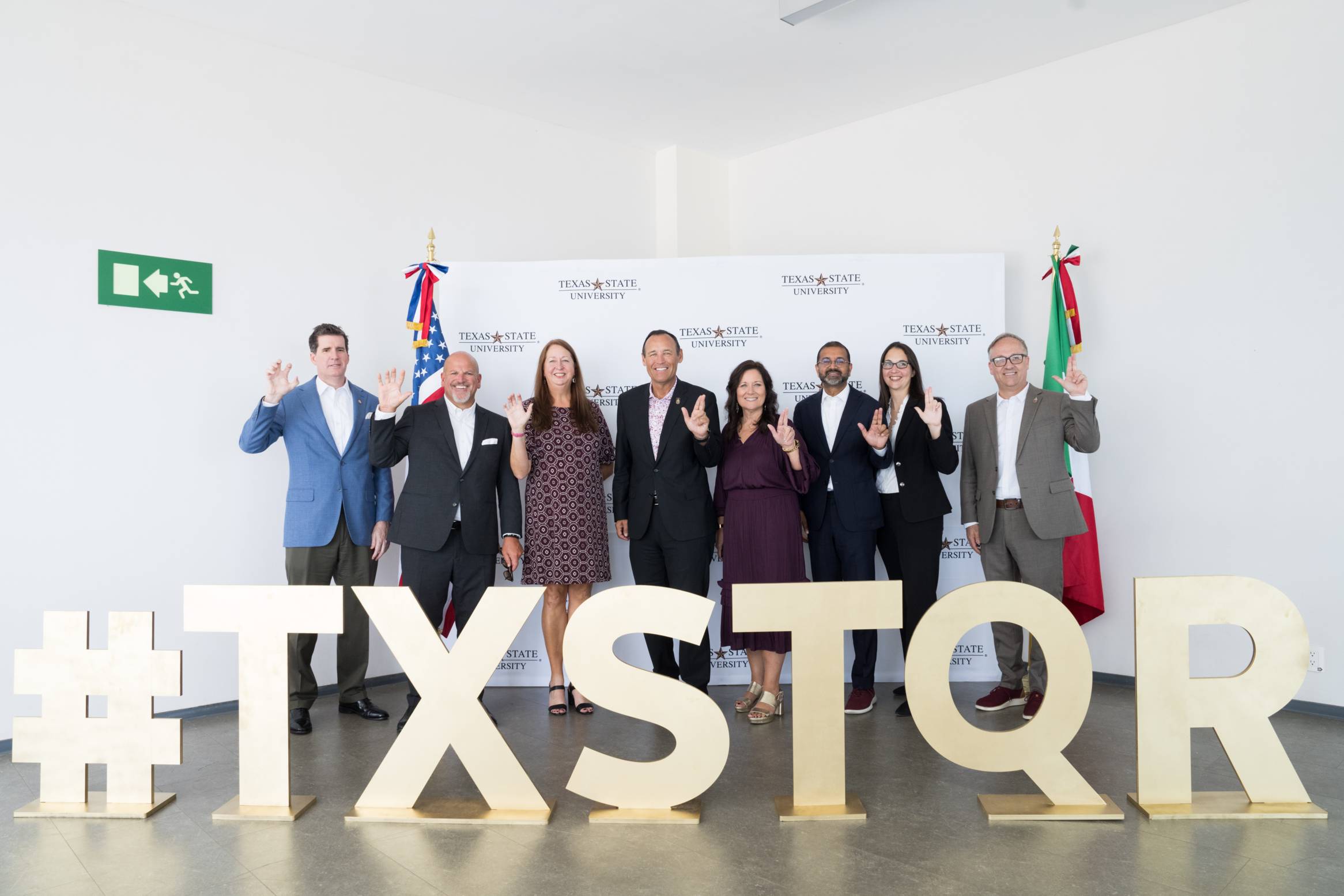Jayme Blaschke | September 4, 2024

Texas State University and Elisia Education Hub have partnered to open a new TXST campus in the Mexican city of Santiago de Querétaro.
Querétaro Governor Mauricio Kuri González and TXST President Kelly Damphousse were among the guest speakers attending the signing ceremony on Sept. 4.
The Texas State University System Board of Regents approved the initiative in August following two years of planning and discussions to bring the campus to fruition. This marks TXST’s first international campus.
Querétaro is an industrial hub approximately 150 miles northwest of Mexico City and boasts more than 1,500 multinational companies in the immediate area. That burgeoning international presence is behind the demand to bring world-class, American-style higher education opportunity to the area. TXST will occupy space on an existing 370-acre campus in Querétaro.
TXST expects to welcome the first Querétaro campus class in fall 2025. Although the degree offerings are still being determined, initial discussions have centered around engineering, psychology, biochemistry and mass communication.
All degrees at the Mexico campus will be fully accredited in the U.S. and Mexico, with classes being taught in English. TXST faculty will establish and oversee the degree program curricula. Elisia Education Hub will hire the instructors, set tuition rates and cover all operational costs. TXST could potentially receive up to $10 million over the span of the 10-year contract, which would be used to support student success and research initiatives on the San Marcos Campus.
The Querétaro campus could prove to be the first in a string of overseas campuses affiliated with TXST. University administrators have already engaged in exploratory discussions with representatives from Costa Rica, Scotland, Italy, Australia, New Zealand, Japan and South Korea that may bear fruit in the coming years.
Share this article
For more information, contact University Communications:Jayme Blaschke, 512-245-2555 Sandy Pantlik, 512-245-2922 |
